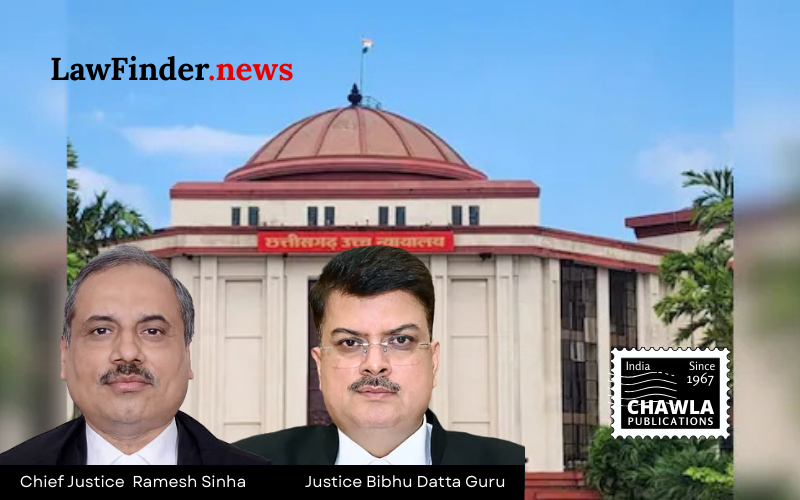Court Limits Judicial Intervention, Affirming Arbitral Tribunal's Findings on Water Charges
The Chhattisgarh High Court has dismissed an appeal by the State of Chhattisgarh, upholding an arbitral award in a long-standing commercial dispute involving water supply charges to M/s Anjani Steels Limited. The judgment, delivered by a division bench comprising Chief Justice Ramesh Sinha and Justice Bibhu Datta Guru, emphasized the limited scope of judicial intervention under Sections 34 and 37 of the Arbitration and Conciliation Act, 1996.
The case revolved around a disagreement concerning the quantity and rates of water supplied to Anjani Steels' plant. The State argued that the arbitral award was contrary to the terms of the agreement, which stipulated a water allotment of 1.81 million cubic meters per year at a rate of Rs. 3.00 per cubic meter. However, Anjani Steels contended that its actual requirement was only 0.29 million cubic meters per year, and that it should be charged at Rs. 0.90 per cubic meter, as the water was drawn from a natural source prior to the construction of the Kelo Dam.
The arbitral tribunal, led by Justice L.C. Bhadoo (Retd.), had found that the State's demand for charges on the full allotment was unjustified given the circumstances. The tribunal concluded that Anjani Steels was liable to pay only for the actual quantity used, at the lower rate applicable to natural sources.
The High Court, in its judgment, reiterated that the scope of judicial review is constrained to instances of patent illegality or contravention of public policy. It noted that the findings of the arbitral tribunal were based on a reasonable interpretation of contractual terms and evidence, and did not suffer from any legal infirmity. Consequently, the court refused to re-evaluate the evidence or substitute its own views for those of the arbitrator.
This decision underscores the judiciary's deference to arbitral tribunals in resolving commercial disputes, reinforcing the principle that courts should avoid reappraising evidence or revisiting the merits of an arbitral award unless it is in conflict with fundamental legal principles or public policy.
Bottom Line:
Arbitration - Scope of judicial intervention under Section 34 and Section 37 of the Arbitration and Conciliation Act, 1996 - Limited interference permissible only on grounds of patent illegality, contravention of public policy, or conflict with fundamental principles of law - Re-appraisal of evidence or substitution of arbitral tribunal's findings is not permissible.
Statutory provision(s): Arbitration and Conciliation Act, 1996 Sections 34 and 37
State of Chhattisgarh v. M/s Anjani Steels Limited, (Chhattisgarh)(DB) : Law Finder Doc Id # 2782855




